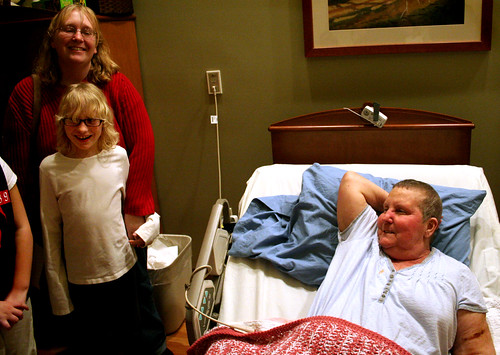
Four Myths About Hospice Care: What Seniors Should Know
Recently a study by Brown University showed that while more seniors are using hospice care than ever before, the vast majority of patients enter these facilities when it’s too late to benefit them. The healthcare community is working to dispel the myth of hospice as something to embrace in the final weeks of life, because the reluctant feelings of seniors and their children about entering hospice often creates a self-fulfilling prophecy – by the time you get there, it really is a place you go to die. Yet hospice shouldn’t be that and definitely doesn’t have to be. While over 40 percent of dying seniors enter hospice, the prevalent myths about what it means have changed the way families view it more than the numbers.
Myth One: Hospice Means Giving Up
The association between hospice care and accepting death is likely because so many people with cancer and other terminal illnesses enter hospice care when there is little hope of recovery. And while it’s true that most hospice patients die quickly, many of them within 30 days, thousands annually survive the six-month duration and are de-certified from hospice by Medicare or their insurance company. Statistically, hospice improves both the quality and length of life for patients. The spiritual counseling, pain management, and assistance with daily tasks often inspires hope in seriously ill seniors instead of taking it away.
Myth Two: Hospice is a Last Resort
In reality, almost all of the families of hospice patients wish they had known about the care sooner. If you do consider hospice as part of end of life care, it’s always better to embrace the tools you need to get your affairs in order while you are still physically and mentally capable of doing it. You can receive the emotional and spiritual support you need while you’re settling your estate, saying goodbye to loved ones, and letting your family know your wishes. In fact, many hospice patients are so touched by the quality of care they receive that they choose to include the hospice in their will. Although it can be difficult to face the reality of an unfavorable outlook, it is much better to be comfortable and prepared, and it will help your family with their grieving process once you are gone.
Myth Three: You Need a Doctor’s Recommendation for Hospice
Research has proven that not only do patients and their families delay hospice too long, doctors delay recommending it. According to Harvard Health, this happens for several reasons, from their fear of medical failure to their unwillingness to take away your hope. Don’t be afraid to ask your doctor to be honest with you about whether you need or will need hospice treatment, because their unwillingness to admit the seriousness of your condition might be keeping you from getting the care you need. And don’t worry about losing contact with them – most patients include their regular doctor as part of their hospice care team, and you can stick with their advice until the end.
Any person with a serious, life-threatening illness can be suited for hospice care, and it can often take place in your home while you continue to live your day-to-day life. It doesn’t have to mean your death is imminent, only that it has been deemed a realistic possibility. End of life care can be scary, but it’s also important to treat yourself and your loved ones with the most respect you can.
Author Mary Harmon is an avid blogger for www.lastwillandtestament.us where you can read her latest articles on hospice care.


